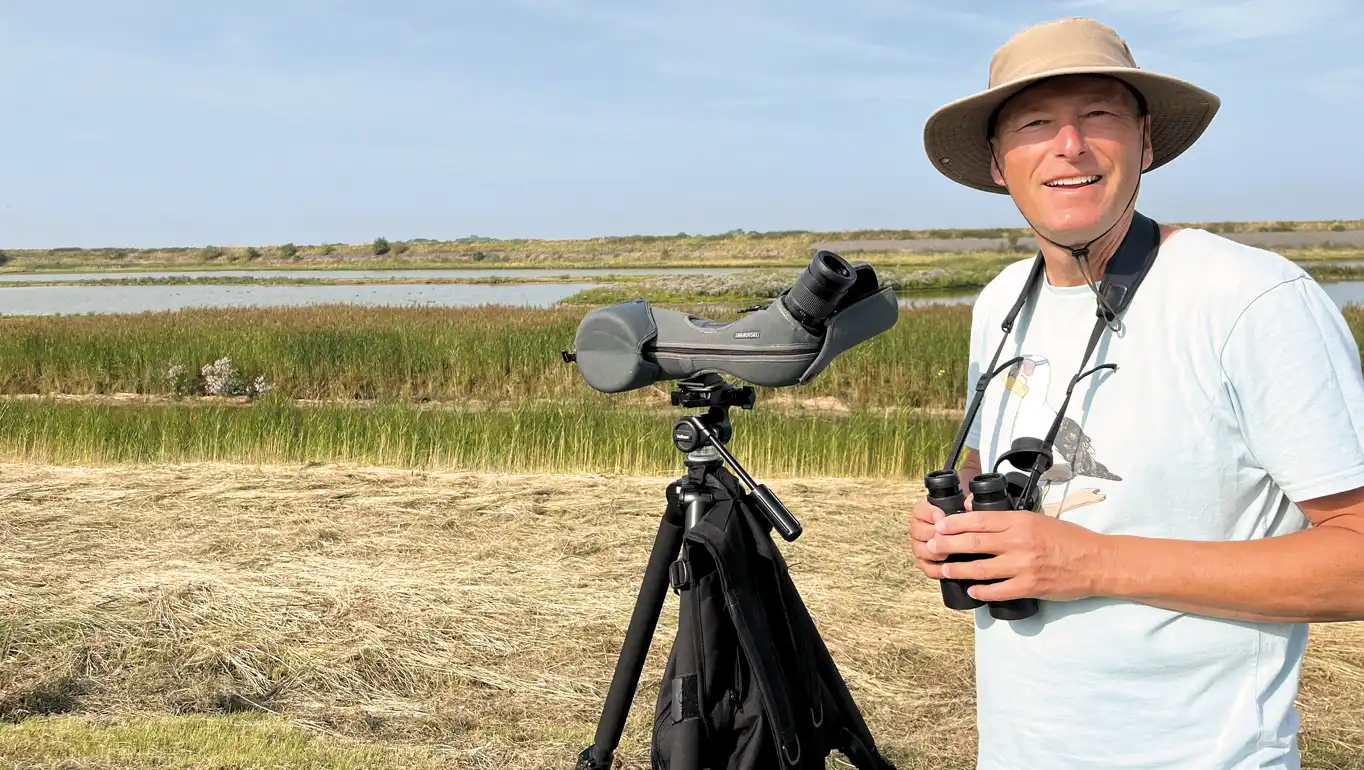James Robinson is Chief Operating Officer of the Royal Society for the Protection of Birds (RSPB), the UK’s leading charity for nature conservation. His work oversees the organization’s operations across the UK, including managing its network of over 220 nature reserves and heading its People team, which covers equity, diversity, and inclusion initiatives.
World Migratory Bird Day on 11 October marks an important occasion to remind us of the threats that birds face and the global responsibility to protect them. This year’s theme is “Shared Spaces: Creating Bird-Friendly Cities and Communities,” which highlights the need to make our spaces more habitable for birds and for better coexistence between birds and humans.
1. As COO of the RSPB, what is your biggest challenge in delivering its mission at a large scale?
Whilst we have a better understanding about what’s driving declines in birds and other wildlife today, we can only tackle these by working on a bigger scale and in bigger collaborations. Complicated factors such as climate change, agricultural policy, pesticides, pollution, and human development emphasize the challenge we are up against. Our strategy is underpinned by the two biggest drivers – reaching net zero and to halt species decline to ensure there’s more nature in the world. The difficulty lies in reaching a wider and more diverse audience, alongside being bolder with our campaigning to be clear about what governments need to be doing. If we want to deliver for a world that is richer in nature, we need everybody on board by enabling more people and more diverse people to feel they can take action to protect and restore our precious wildlife and where they live.
2. How is the RSPB planning to mark World Migratory Bird Day on 11 October in terms of raising awareness about migratory species?
Every year, we welcome millions of migratory birds to the UK. Unfortunately, across the globe, these species face a range of threats, from habitat loss to climate change, and many of their populations are in trouble. World Migratory Bird Day is a fantastic opportunity to celebrate them and their amazing long-distance journeys; from the Turtle Doves that breed in our fields in summer before flying to West Africa; to the elegant Whimbrels that stop off here to rest and refuel before continuing their epic journeys south; as well as the many ducks, waders and other waterbirds that arrive in autumn to spend the winter with us.
This year’s theme is ‘communities’ so we’ll be taking a behind-the-scenes look at migratory bird conservation by celebrating some of the amazing people involved in this vital work. We will also be shining the spotlight on some of the fantastic partner organizations we work with on projects overseas, from the wetlands of Iceland to the savannahs of Ghana, to help protect the awe-inspiring birds that we all share.
3. What are your tips for individuals and communities wanting to support migratory bird conservation?
Volunteering your time can make a huge difference. We have a network of more than 13,000 dedicated volunteers and the RSPB’s work wouldn’t be possible without their support. Many of our migratory bird efforts involve volunteers – from our Little Tern beach-nesting bird teams to the Turtle Dove trail camera projects – there are so many ways individuals and whole communities can get involved.
People can also install their very own nestbox for swifts or get involved with an RSPB local group – every action, no matter how big or small, can support migratory bird conservation.
We share these opportunities on our website and encourage everyone to find out more: https://www.rspb.org.uk/helping-nature/support-the-rspb/volunteering.



